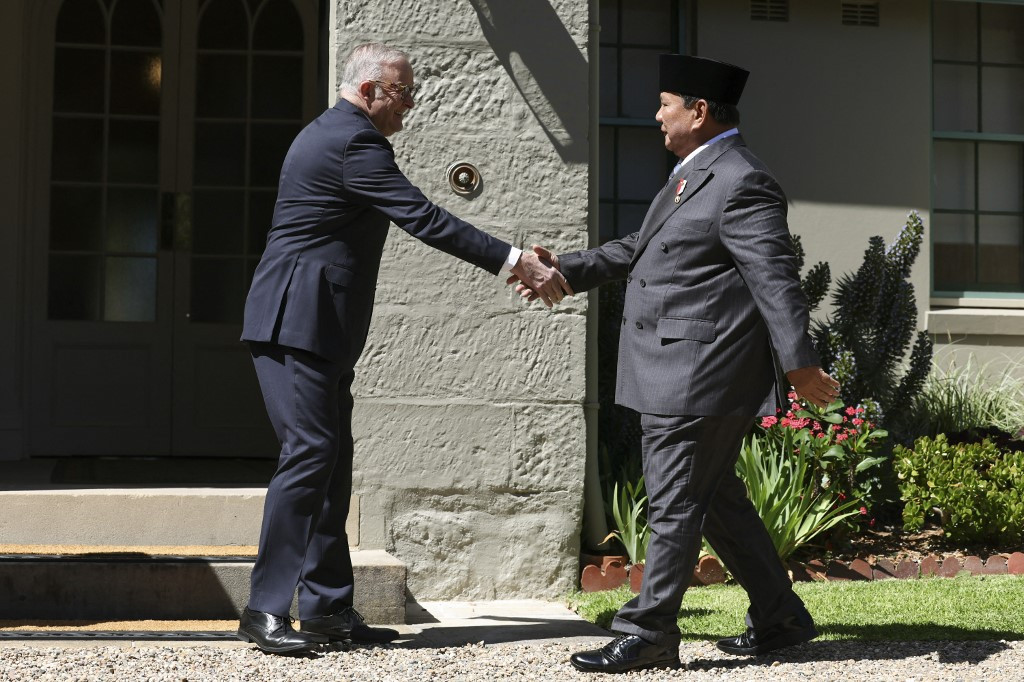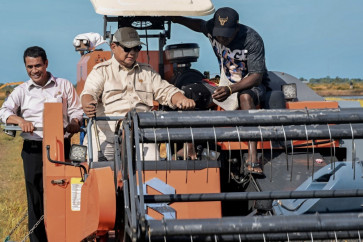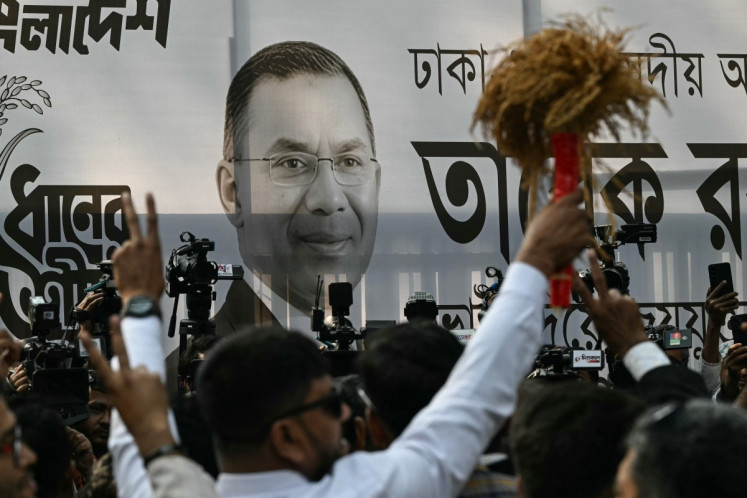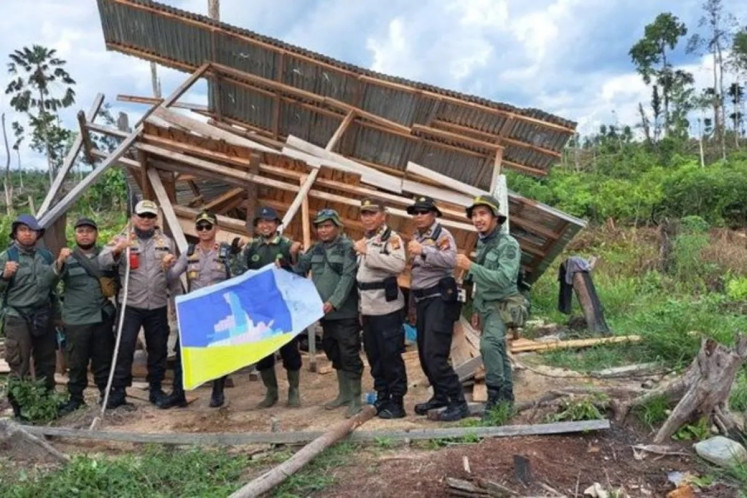Popular Reads
Top Results
Can't find what you're looking for?
View all search resultsPopular Reads
Top Results
Can't find what you're looking for?
View all search resultsAustralia, Indonesia agree to sign new security treaty
Canberra has drawn ever nearer to longtime ally Washington, bolstering its military in an attempt to deter the might of a rising China in the Asia-Pacific region.
Change text size
Gift Premium Articles
to Anyone
A
ustralia and Indonesia agreed on Wednesday to sign a new security treaty, which includes closer military cooperation, the two countries' leaders said following talks in Sydney.
Canberra has drawn ever nearer to longtime ally Washington, bolstering its military in an attempt to deter the might of a rising China in the Asia-Pacific region.
Jakarta has walked a more neutral path, wary of drawing too close to Washington and far less willing to needle Beijing.
Prime Minister Anthony Albanese, speaking alongside President Prabowo Subianto at a Royal Australian Navy Base in Sydney, said they had "just substantively concluded negotiations on a new bilateral treaty on our common security".
"This treaty is a recognition from both our nations that the best way to secure... peace and stability is by acting together," Albanese told reporters.
The Australian leader said he hoped to visit Indonesia next year to sign the new treaty.
He said the agreement builds on a bilateral defence pact signed in 2024, which pledged closer cooperation in the contested Asia-Pacific region and included provisions for each military operating in the other country.
The new agreement will commit the two countries to "consult at a leader and ministerial level, on a regular basis on matters of security", Albanese said.
It will also facilitate "mutually beneficial security activities, and if either or both countries' security is threatened, to consult and consider what measures may be taken, either individually or jointly, to deal with those threats," he said.
Prabowo told reporters that the treaty committed to close cooperation between the neighbours in defence and security fields.
"Our determination is to maintain the best of relationships in order to enhance and guarantee security for both of our countries," he said.
"We cannot choose our neighbours... especially countries like us," he said.
"Good neighbours will help each other in times of difficulties," he added.
Australia's Foreign Minister Penny Wong said in a statement the treaty was expected to be signed next year. It was modelled on a 1995 security agreement between the two countries, she added.
The 1995 deal was withdrawn in 1999, after Australia led a United Nations peacekeeping force in then East Timor, which was plunged into violence as it sought independence from Indonesia.
Once tense security ties have warmed under the centre-left Labor government of Anthony Albanese, who visited Jakarta in his first international visit after being re-elected in May.
Australia has recently sought to boost defence ties with its neighbours, striking a mutual defense treaty with Papua New Guinea to its north last month.
Unlike the PNG treaty, the Indonesia agreement does not commit to acting to meet common danger, said Euan Graham, a senior analyst for defence strategy at the Australian Strategic Policy Institute.
"Cynics could say it doesn't really commit in any hard sense, it is more about raising the political symbolism of the relationship," he said.
Albanese could show he had put the Indonesia relationship back on track, while for Prabowo it was "classic balancing behaviour", showing he was keeping Australia happy if concerns were raised that Indonesia was tilting too much towards Russia or China, he added.










